
Fanzine reviewed: SPACE JUNK
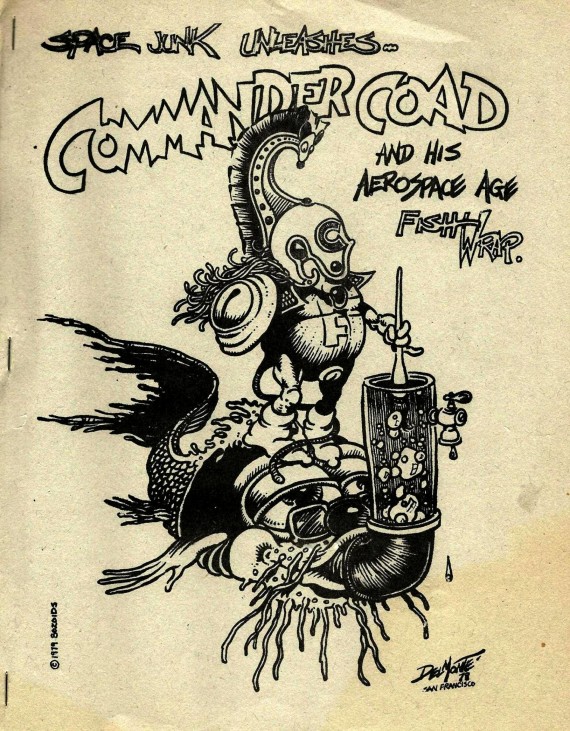
SPACE JUNK Unleashes Commander Coad and his Aerospace Age Fish Wrap (#4) 1980
Faned: Rich Coad.
As a fan historian of sorts, there are certain things I hate to see a fan editor do. Assigning articles and art page numbers in the Table of Contents but not bothering to number the pages bugs me. A little extra work to figure out which fillo was done by which fan artist. I can forgive that.
But what really riles me is not dating the zine. This can drive a fan historian nuts. Given that the cover art is dated “78”, and also states “© 1979,” and the fanzines reviewed within all date from 1979—the dates are not given; I had to look up said issues in my list of the contents of the BCSFA archive to learn their dates—I conclude SPACE JUNK #4 came out in late 1979 or, more probably, in 1980.
Not printing the date of an issue is more of a British tradition and not typical of a San Francisco zine like this one, but as will be seen SPACE JUNK seems to emulate British fanzine fandom and that might be the reason for not specifying the date of publication.
SPACE JUNK #4 is only 24 pages long but packs quite a punch, or rather two punches, one of which probably elicited a lot of negative comment, the other positive responses. Not a bad bit of editorial planning methinks. Feedback of one kind or another guaranteed.
The editorial, titled “literate after a fashion” starts off well, in that it conjures up an evocative image of boyhood fandom most (male) readers can identify with:

“Back in the days of my youth, when I was still reading a great deal of the so-called ‘Golden Age’ sci-fi, the stuff that was chock full of planet-bursting, intergalactic intrigue and one exceptionally endowed fellow saving humanity, I had what must be a common fantasy of lonely, adolescent sci-fi readers: I was sure that I, too, was the greatest asset of mankind.”
I guess I lacked imagination when I was a child. I just skipped back and forth between being a shy kid and pretending I was the greatest Space Hero in the Universe. I never actually thought anybody would mistake me for the latter. In fact I took pains to be alone when I indulged in fantasy. Manipulating the levers and switches of my mom’s washing machine—obviously the cockpit controls of my trusty spacecraft—while my parents were out, for instance. As for being “exceptionally endowed” … hmmm. Whatever Rich means by that, I was pretty sure I wasn’t in real life. Oh well.
Anyway, Rich goes on to talk about planning exotic physics experiments while hanging out in a rundown “pile of rotting wood” attached to his friend’s apartment building. “Somehow we never got beyond watching the brilliant flame of burning magnesium,” he says. I was given a chemistry set too, by my aunt I think, but I wasn’t allowed to use it. Kind of a disappointing Christmas present when I think about it. I could only dream of “burning Magnesium.”
Then Rich goes on to describe his latest fantasy: “Tired of the mounting tide of drivel put out under the banner of “new-wave” music San Francisco fandom has decided to form its very own punk band to be called, of all things, The Fans.”
This somewhat ruins the editorial for me. Oh, not because they never got beyond a few practice sessions with cheap equipment: a $199 guitar, a $50 set of drums. No sir. It’s because, unlike most kids, I never fantasized about being a rock star. Heck, in Kindergarten I was kicked out of the class “band” because I couldn’t bang two wooden blocks together in any sort of rhythmic fashion. Scarred me for life that did. Sure I owned a pair of bongo drums in the mid-1960s in order to look cool, but I never dared play the damn things. Couldn’t keep a beat.
Now to the controversial punch in the zine. “On Your Feet or On Your Knees” by Joseph Nicholas, a British chap who embodied the worst, or best, traditions of British fandom, depending on your point of view. He contributes a bunch of reviews of American fanzines, reviews so vitriolic they probably brought a few faneds to an early grave by overburdening their veins and arteries with excessive pressure.
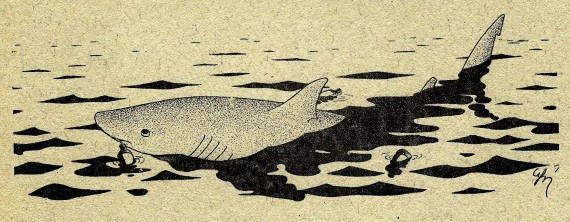
Mind you, I absolutely agree with one of his main points—and have occasionally been condemned for this—namely disliking the common obsession with layout and appearance as opposed to the nature of the contents. Says Joseph:
“Fanzines are, after all, for reading and not for bloody looking at; and any fanzine deficient in worthwhile and well-written reading material has signally failed to achieve its primary goal: to communicate. In point of fact, I’d go so far as to say that any editors who fail to provide their readers with said material are damn well cheating them blind.”
Fair to say Joseph approaches the task of reviewing “American fanzines: magnificent of layout, bland and boring of content” with all the gusto and glee of a vulture hopping ever closer to a dying zebra. Not one to hold his words back, this lad.
“Here, I told myself, is the opportunity to present a decidedly BRITISH view of the whole scene; not just some squibby capsule ‘reviews’ of the type purveyed by Brian Earl Brown and Taral Wayne – so many pages of this and so many pages of that together with some guff about the repro and a rating number assigned on a purely arbitrary scale of values that tells you almost nothing about the worth of the fanzines under ‘review’ and absolutely nothing about the critical standards the ‘reviewer’ is using, the whole resembling nothing so much as a buyer’s guide to used cars – but a structured, critical essay providing both an in-depth appraisal of the particular fanzines at hand, an indication of the overall objective standards by which they will all be judged, and some general comments about the field as a whole.
By Jove! Sounds like he’s going to be fair, impartial, and objective, doesn’t he? Well …
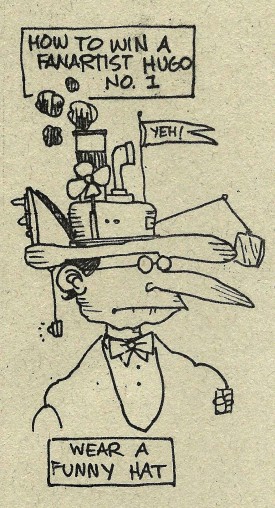
“To get down to cases, however, with a prime example of a fanzine that’s very pleasant to look at but an absolute struggle to read all the way through: Jeanne Gomoll’s and Janice Bogstad’s JANUS #15 … The paper is of the best conceivable quality, the line art effective (if occasionally naïve and perspectiveless), and the printing so crisp and clear that it makes even the best-lithoed British fanzines look as though they were run off with the aid of a sooty potato and a sheet of second-hand blotting paper. But excellence of presentation cannot disguise paucity of content, and the contents of JANUS #15 strikes me as tedious beyond redemption … Gomoll and Bogstad, and their contributors, never seem to use two words when they think they can get away with fifteen, and in consequence reading JANUS is akin to wading through a lake of treacle: page after page of circumlocutious waffle that does nothing to illuminate the points its writers are trying to make … It’s all so blasted humorless … Oh God, it’s dull. How did it ever manage to get itself nominated for a Hugo? It’s huge circulation, probably …”
Here’s another demonstration of Joseph’s eagerness to avoid being impolite:
“Hank Luttrell’s STARLING #37 doesn’t impress me much, either. It’s another Madison Wisconsin fanzine, from the same organizational stable as JANUS which, incredible though this may sound, is even duller, even more single-minded and even more overwritten … after about half-a-dozen pages my eyes glazed over and I fell into the sort of stupor one normally associates with listening to Jerry Pournelle or Sam Moskowitz droning on about how war and killing people are quite noble and uplifting pastimes really … [the] tone is one of seriousness: deadeningly earnest proselytization of the wonders and benefits of ‘alternative’ life-styles and such, and didn’t we have all that back in the sixties anyway? So why in God’s name is Luttrell continuing to flog this horse which, far from being merely dead, is actually decayed and stinking beyond all recognition? More to the point, what is all this material doing in a fanzine?”
And just one more (of quite a few—ten pages worth) gentle critique:
“Allan Beatty’s PHOTRON #16 … comparison of this latest issue with various previous issues … reveals that PHOTRON is the same insipid and undistinguished assemblage of random and unrelated bits and pieces as before, a fanzine apparently forever destined to stumble blindly upon its way like some sort of remote-controlled headless chicken, never quite achieving a firm grasp on life and yet never falling over dead either. It is, in other words, an out-and-out crudzine, devoid of wit, personality, sense, tone or direction, and I’m frankly amazed that Beatty can have published so many issues of it without yet having formed any clear idea of exactly what he wants to do with it.”
The above three reviews present a pretty good picture of Joseph’s approach to reviewing fanzines. The only contemporary reviewer who even comes close is Lester Rainford in his SWILL column “Pissing on an Old Pile of Amazings” which, however, is more wide-ranging in its targeting than just fanzines. Similar tone though.
Incidentally, Joseph defines SPACE JUNK, along with MOTA and RAFFLES as “American fanzines possessed, in one way or another, of a decidedly British bias,” which I take it he means as a compliment.
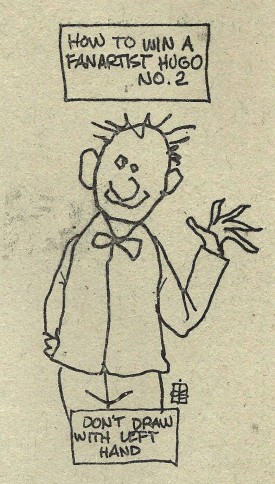
So, what’s wrong with American fanzines in 1980? Why are they so bland? (According to Joseph.) It all boils down to a misplaced sense of purpose, a false motivation.
In the UK, fanzines are (or were in 1980) hobby publications published for a few friends and acquaintances, and are intensely personal in a way Joseph believes can only be found in a few American APAE, but not in American fanzines.
Whereas American fan editors back then were obsessed with that grand old American tradition, competition. Publication runs were huge, sometimes approaching 400 or more, and there’s no way all the recipients shared the viewpoint and interests of any given faned. Consequently American fanzine publishers, anxious not to offend anyone, or at least as few readers as possible, avoided controversy and stuck to the tried and true and tended to throw in a hodge podge of material in the hope that at least something in the issue would please. Since readers weren’t really interested in reading, so much as looking at a pretty zine, layout and design were infinitely more important than content. All this presumably with an eye to encouraging as many Hugo nominations as possible.
Well, of course I’m condensing the gist of Joseph’s various remarks and asides into a couple of paragraphs to save space. I believe it reflects his viewpoint fairly accurately. That said, the above is as good a theory as any, if debatable. If true, it explains a lot.
So what, if anything, is relevant today? I’m struck by Joseph’s amusement over American faneds complaining they hardly ever get decent feedback, that letters of comment are few in number. This, if anything, is an even bigger problem now than it was 36 years ago. What gives?
“But look, dammit, while fanzines are only a hobby, they cannot possibly hope to sustain the interest of their readers, much less provoke them into responding, unless their editors go deliberately looking for that response; and at present [American Faneds] seem content to simply sit and wait for the contributions to fall through the mailbox rather than get out there and hunt the buggers down. (And ‘provoke’ doesn’t necessarily mean ‘insult’, either; if you think it does you’re an illiterate cretin.)”

It all boils down to comment hooks. I don’t wonder but that modern faneds might be terrified of using them. Comment hooks have been warped and twisted by Facebook into troll bait. They’ve become notorious, somewhat evil in fact. Certainly disgraceful and not at all respected.
And yet … and yet … fanzines are different. Though most letters of comment are emails, I do believe they are written keeping in mind they are going to see “print,” even if solely as an electronic PDF. A fanzine is all of a piece. The aura of the printed, “permanent” page still clings to fanzines. Writing for the ages, as opposed to the May Fly ephemera of Facebook “conversation.” In short, letters of comment are composed more seriously and more thoughtfully than the average bit of off-the-cuff Facebook fluff. Yet another justification to keep fanzine fandom going.
Point is Joseph Nicholas has a point. If you want to trigger a Loc flying your way, you have to write something which compels the reader to respond, a piece or a concept which forces the reader to disagree or insist on sharing their opinion and/or experience. Something they CANNOT ignore. Something they MUST respond to.
Like what exactly?
Bland same old same old doesn’t cut it. It has to be personal. Wry observation. Unusual conclusions. Unique opinions. Something different. Something original. Something the reader had never thought of before. Something that stimulates the reader’s synapses, invigorates them, stirs them to action.
All of the above falls within the definition of “good writing” I do believe. A worthwhile goal.
Speaking of which, what is the “positive punch” in this issue?
An extremely rare fannish essay by William Gibson (yes, THAT William Gibson!) titled “MY LIFE UNDER FASCISM or franco shot my dog.”
It was 1971 and Bill was vacationing in Spain: “I came to be tripping merrily through the typical Spanish sea-wrack of suntan lotion bottles and decapitated Barbie dolls, along a dark beach, with Africa not very far away, on Christmas Eve.”
As usual with Bill, use of telling and odd details to help set the scene.
Long story short, two members of the Guardia Civil, which he describes as “a kind of cross between the FBI, the Forest Rangers, the State Police, and the Waffen-SS,” having ascertained a dog Bill was petting was not actually his but a stray, shoot the dog.
“Now, for those of you on the verge of tears, I’m going to blow the emotional impact of this episode by telling you that Perro was not in fact, dead. They creased him. Just like the old cowboy movies. The high-speed, copper-jacketed Parabellum slug had drilled a neat hole through the roll of loose skin above his shoulders. But we didn’t know that until after midnight, when he came scratching at the door.”
“So the next time you hear someone say that Heinlein or Bianca Jagger or Anita Bryant is fascist, I’ve given you one little yardstick of the genuine, the historical, article. They shot my dog. I say MY dog because this experience taught me something about fascists: if you don’t admit to owning the world’s stray dogs, they’ll shoot them. And one day they’ll be back. For you. With the boxcars.”
I do believe this is the kind of thing Joseph had in mind as the sort of thing which SHOULD be in fanzines.
ART CREDITS:
#1 (Cover) – Del Monte
#2 – Atom
#3 – Taral Wayne
#4 – Dan Steffan
#5 – Dan Steffan
#6 (Back Cover) – Kent Johnson
BY THE WAY:
You can find a fantastic collection of zines at: Efanzines
You can find yet more zines at: Fanac Fan History Project
You can find a quite good selection of Canadian zines at: Canadian SF Fanzine Archive
And check out my brand new website devoted to my OBIR Magazine, which is entirely devoted to reviews of Canadian Speculative Fiction. Found at OBIR Magazine
And while checking out OBIR, click on the sub-heading “Polar Borealis Magazine” to see the first issue of my semi-pro SF&F fiction zine.





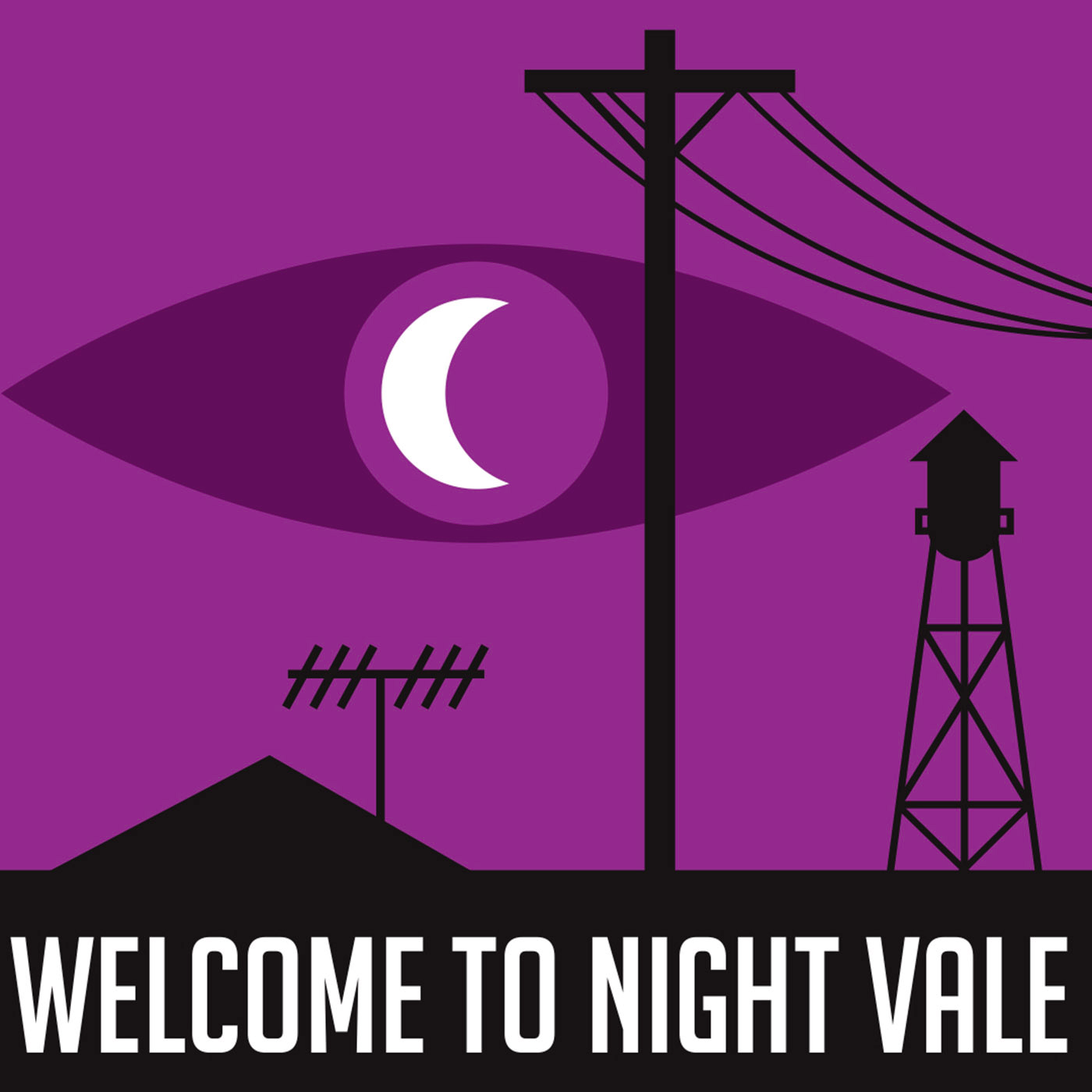





I’d love to know how many copies of a typical issue of Space Junk were produced. Can you provide a ballpark estimate? Thanks! Randall
I remember that issue and Joseph Nicholas’s fanzine reviews very well. We used to call them KTF — for “Kill the Fucker” style reviewing — and at the time I found them very entertaining. You have to consider the KTF style against a background of namby-pamby reviews that strove to never say anything negative, but to find something to praise in everything. While this philosophy might seem commendable when followed by a social worker or diplomat, it obviated the whole purpose of reviewing … which is to distinguish between works that are worth the time and attention they take to read/view/listen to, and those that aren’t. In other words, the review is aimed at the consumer, not the producer. Why would you read a movie review column that found good in every film, and led you to spending a lot of money on movies that you didn’t enjoy? However, the KTF style eventually outgrew its usefulness. For one thing, we don’t all enjoy the same things, so although the reviewer might not have found what he enjoyed in a particular fanzine, he must also acknowledge that there may be things that other readers might enjoy. And yet there are real standards to which a fanzine can be compared. Whether or not one enjoys poetry in a fanzine, or convention reports, either subject can still be poorly done. In the end though, it seems as though fanzine reviews themselves fell out of favour as the 1990s rolled by, and those that were published in the following years tended not so much to adhere to an ideal middle course, but to take the line of least resistance — the list of contents without any judgement of them that Joseph deplored. The other major failing the KTF style of fanzine review suffered from was parochialism. Although there was a vogue among fanzine fans in the UK and the US to rediscover each other, I now think that there was not actually any deep understanding. The number of fans who could cross the Atlantic to spend any great amount of time with fans on both sides of the ocean were quite small. The very nature of British fandom is its closeness — even among different groups and circles there is a common map of fandom. No matter in which major city a convention is held, I think it is unlikely to be more than a day’s drive from every other major city. Whether you are in one circle or another, you are apt to see everyone, sooner or later. Not so in the US (or Canada). To us, that the Brits are at arm’s length is no different from how a Seattle fan looks at a New Orleans fan, or a Chicago fan looks at an LA fan. Distances keep us apart and that is normal. But to a Brit, the distance between his fandom and ours is divisive in a way that is totally unlike living in Leeds or London. British fans accept some North American fans into their intimate little world, but the rest of fandom here might as well be on Pluto, for all they know of it, or have any interest in it. I think this showed very clearly in Joseph’s old fanzine reviews. US fanzines served a different purpose for a fandom that was not like the cozy fandom he knew, and he lacked any real interest in it. So he made the tribalistic error of thinking them inferior. Reviews of that sort still served their purpose, mind you. If you belonged to British fandom and had little or no interest in fandom outside of your familiar grounds, then zines Joseph did not especially like would probably not appeal to you. Unfortunately, the KTF attitude had, I think, a disproportionate effect on North American fandom. Many of us wished our fandom was more like the British version, and also judged fanzines by whether or not they exhibited the same sort of cliquishness. We were not entirely able to imitate British fandom, however. No matter how much we tried to pretend otherwise, New York was nowhere near Miami or St. Louis, so we were never “one fandom” … not even “one fanzine fandom.” Meanwhile, perhaps we undervalued our own efforts. Space Junk was one of the era’s better fanzines, as I recall — though it ran too few issues. But it was almost a unique item too — a hybrid fanzine, published in the US by a Brit (a detail you seemed to have been unaware). No wonder if seemed almost to belong to the best of all possible fandoms.